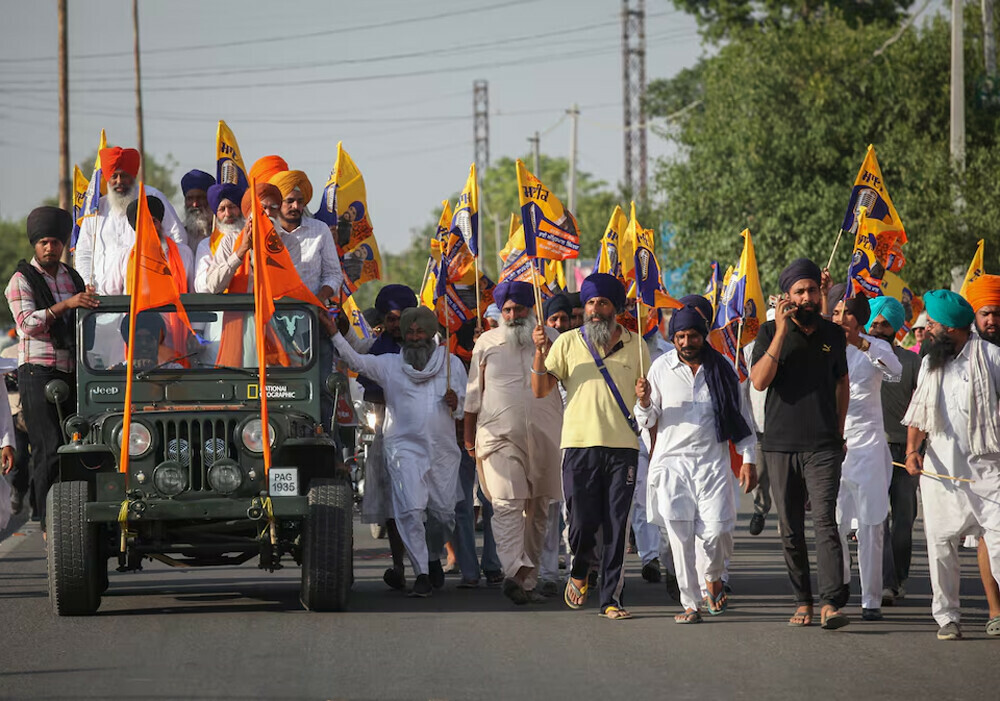India Election
A Sikh separatist leader, Amritpal Singh, is contesting India’s general election from prison, garnering significant support and raising concerns for New Delhi’s efforts to curb Sikh militancy resurgence.
Singh, detained in Assam’s high-security prison, stands for election in Punjab’s Khadoor Sahib constituency, where his image adorns posters depicting him with weapons.
His arrest last year under stringent security laws followed a violent incident where he and his supporters stormed a police station demanding the release of an aide.
Winning a parliamentary seat could grant Singh legitimacy and revive concerns about Sikh militancy, which claimed thousands of lives in the 1970s and 1980s.
Singh’s father, Tarsem Singh, voiced confidence in voters’ decision-making on June 1, hoping for a message against those tarnishing his son’s image and the Sikh community.
Singh’s campaign focuses on addressing Punjab’s drug crisis, releasing former Sikh militants, and safeguarding Sikh identity in India. However, his aides steer clear of advocating for a separate Sikh homeland.
Despite initial reluctance, Singh’s candidacy gained momentum in Khadoor Sahib, historically significant for Sikhs, supported by community leaders. Indian law permits undertrials to contest elections.
Contesting as an independent, Singh faces opposition from Sikh-centric parties like Congress, Shiromani Akali Dal, Aam Aadmi Party, and BJP. While he commands support, rivals doubt his victory potential, wary of reigniting militancy fears.
Abroad, demand for a separate Sikh nation garners more traction, but Singh’s rise poses risks of extremist resurgence amid mainstream party rivalries.
Analysts caution against undermining moderates, warning of fringe radicals exploiting political voids.
Despite challenges, Singh’s candidacy reflects complexities in Punjab’s political landscape and lingering sentiments from its tumultuous past.
I am a dynamic professional, specializing in Peace and Conflict Studies, Conflict Management and Resolution, and International Relations. My expertise is particularly focused on South Asian Conflicts and the intricacies of the Indian Ocean and Asia Pacific Politics. With my skills as a Content Writer, I serve as a bridge between academia and the public, translating complex global issues into accessible narratives. My passion for fostering understanding and cooperation on the national and international stage drives me to make meaningful contributions to peace and global discourse.










